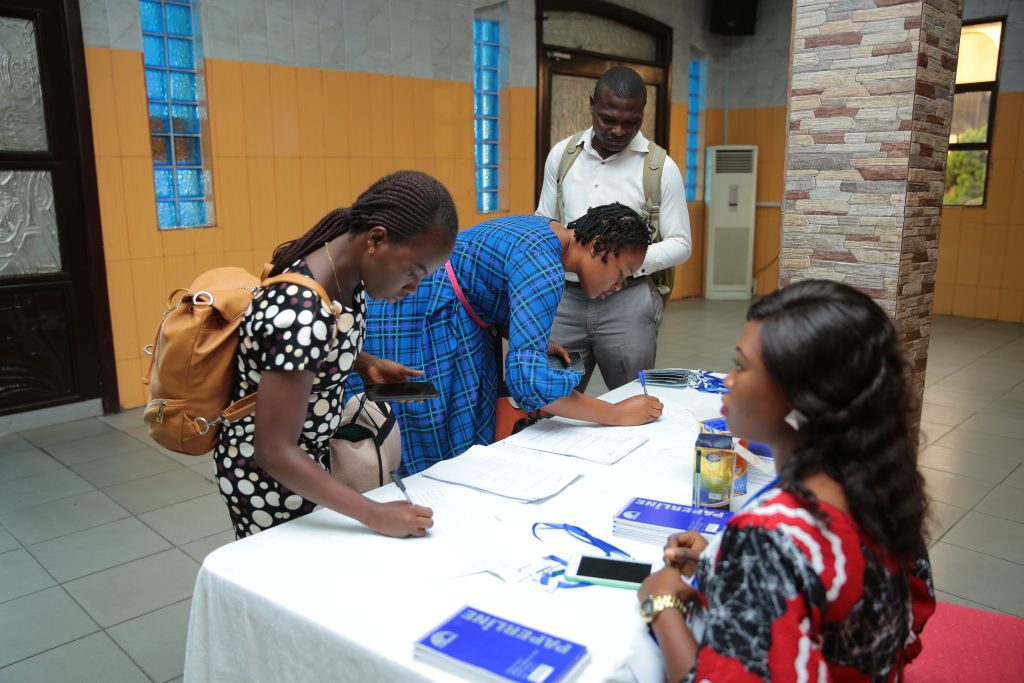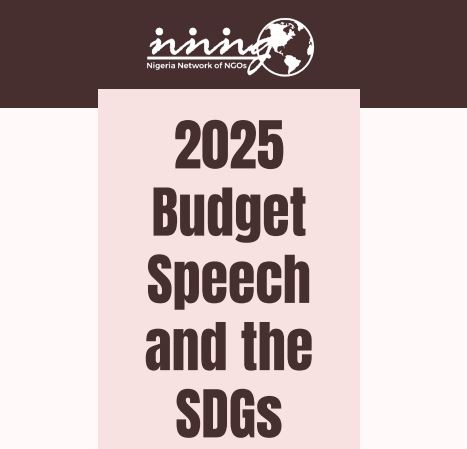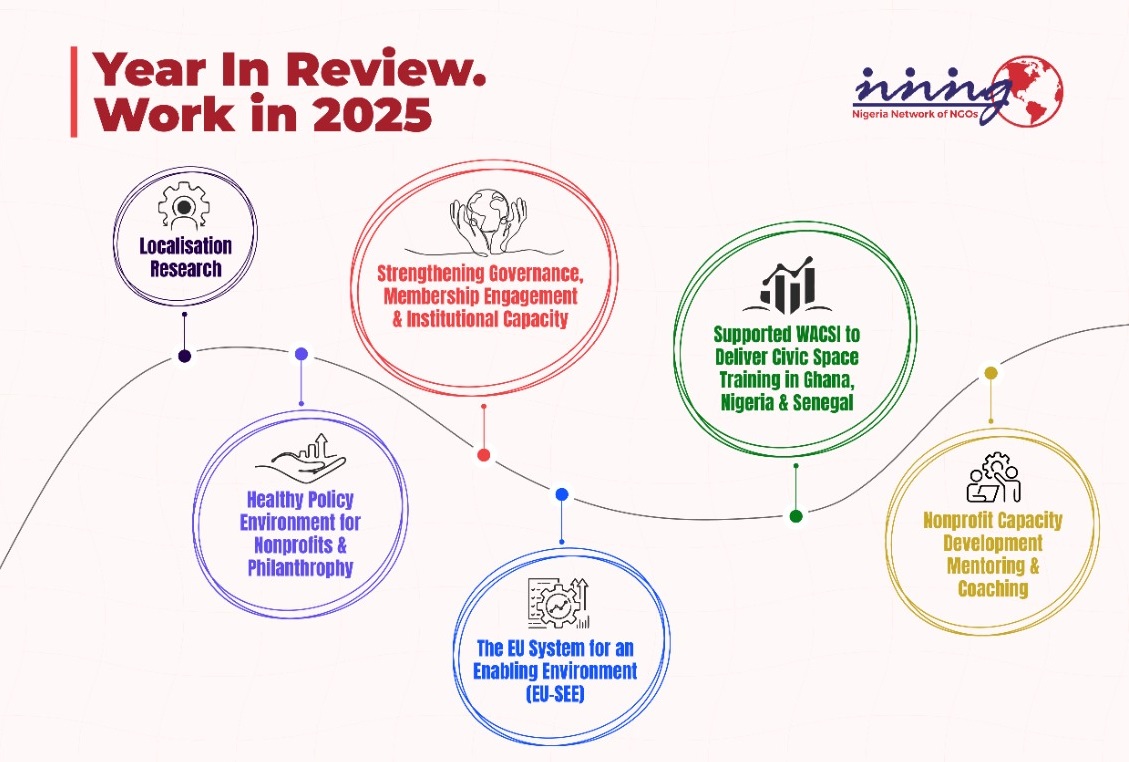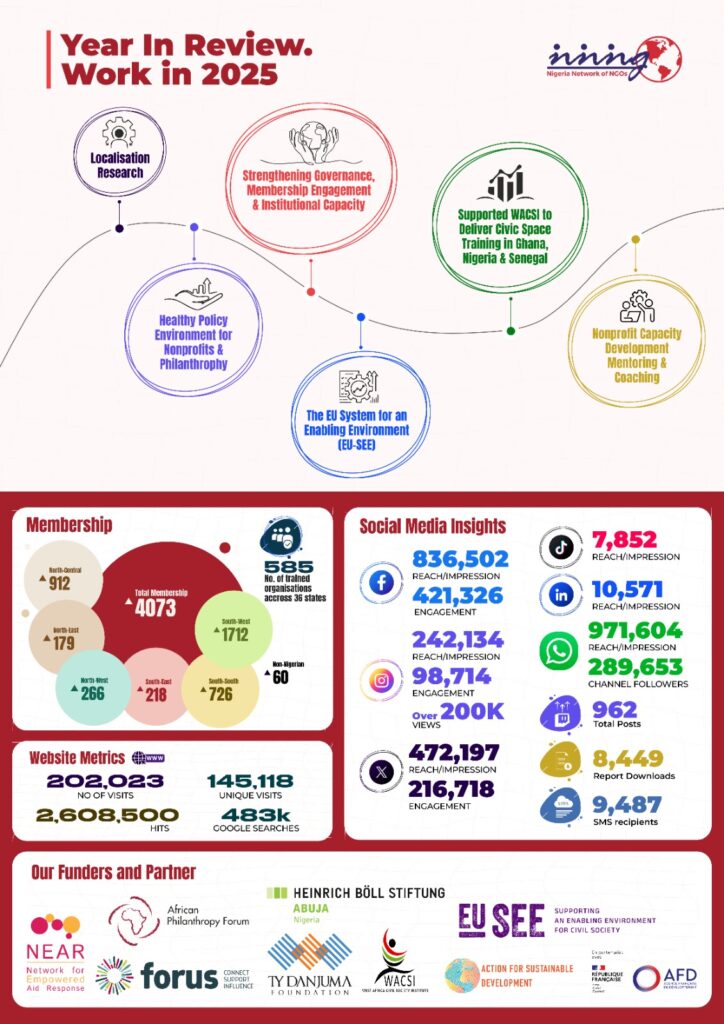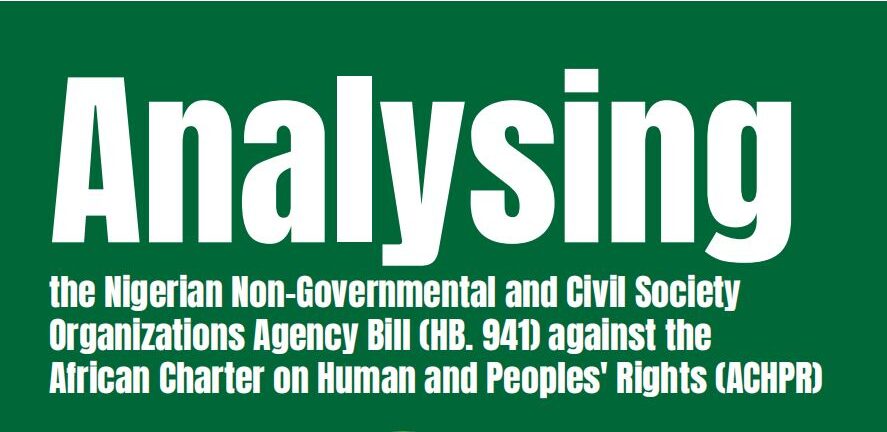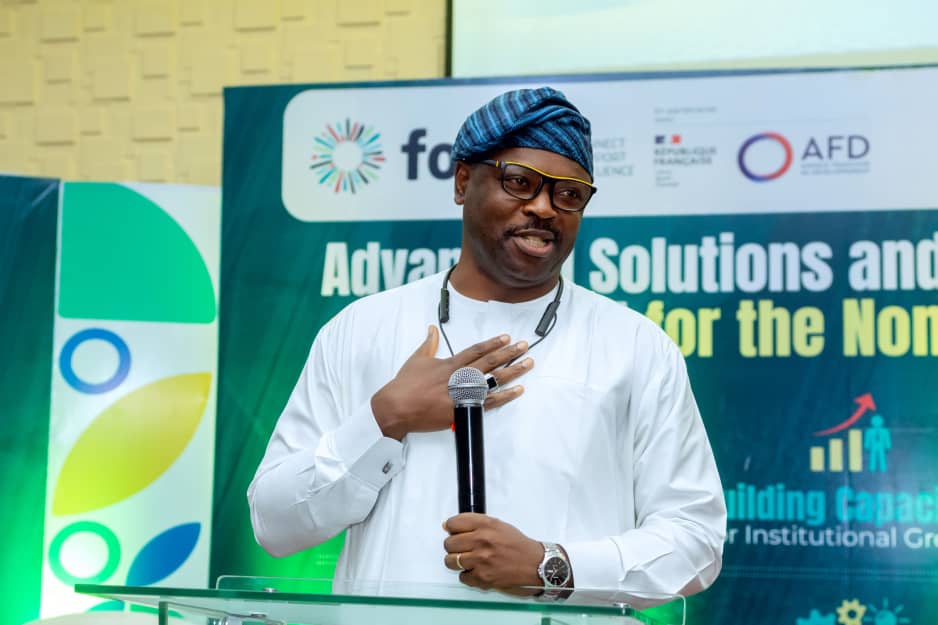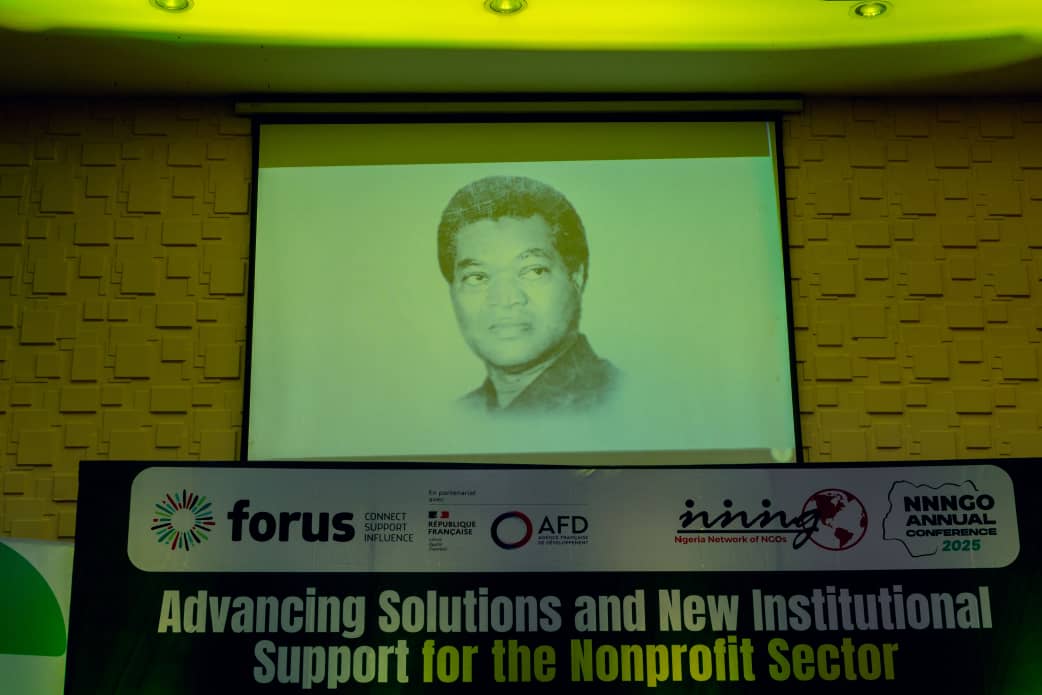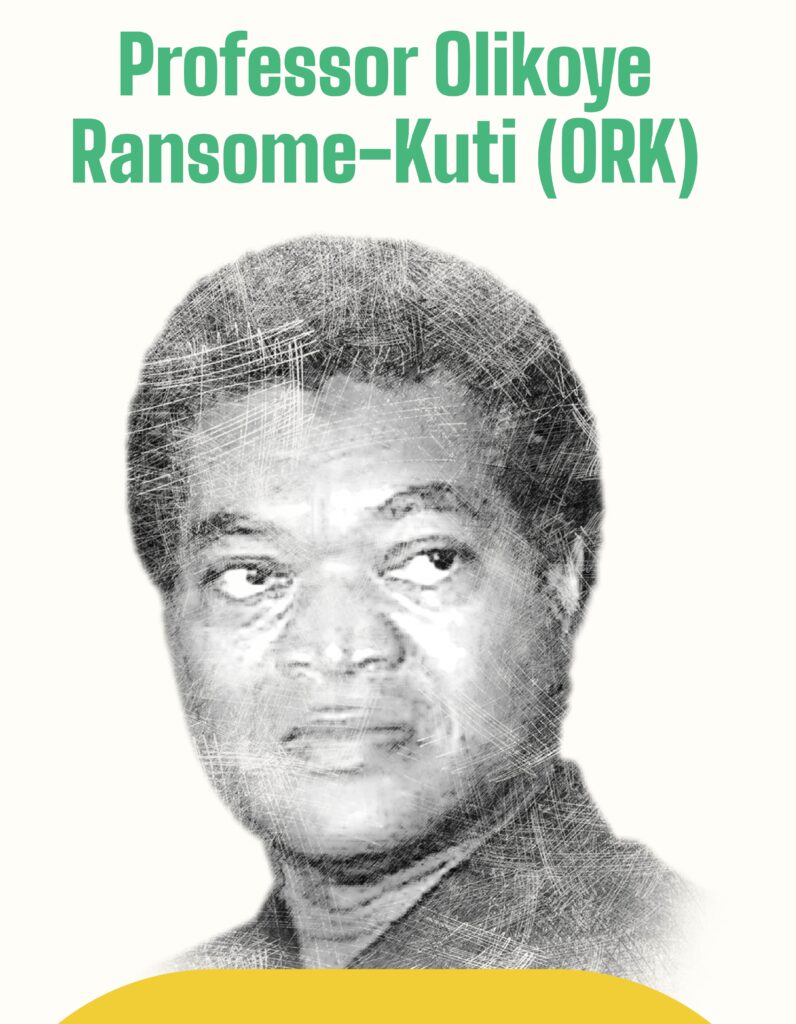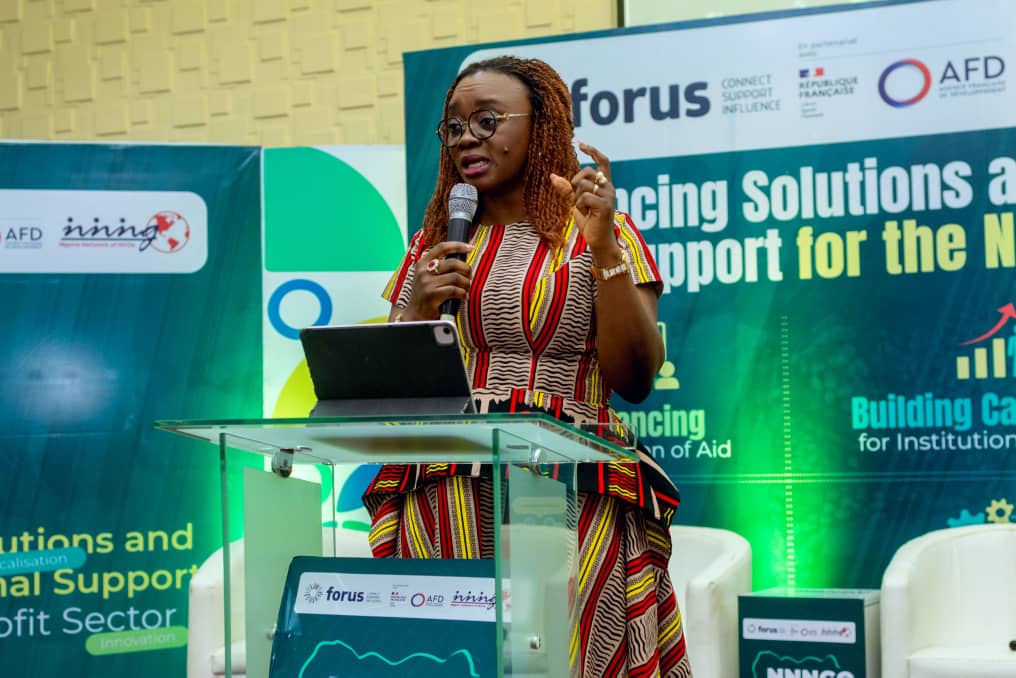Author: BUSARI ABBAS
Toyin Akinniyi Delivers High-Powered Keynote on Reimagining Institutional Support for Nigeria’s Nonprofit Sector at the NNNGO Annual Conference 2025.
Toyin Akinniyi Delivers High-Powered Keynote on Reimagining Institutional Support for Nigeria’s Nonprofit Sector at the NNNGO Annual Conference 2025.
At the 2025 Annual Conference of the Nigeria Network of NGOs, November 12th in Lagos, Toyin Akinniyi, Vice President Africa, Luminate, delivered a deeply moving and forward-looking keynote address under the theme: “Advancing Solutions and New Institutional Support for the Nonprofit Sector.”
Her speech, rich with history, personal reflection, and sector-wide insight, stresses on how far Nigeria’s civic space has come and a call to action for what must be strengthened next.
Rooted in Place, Community, and Context
Akinniyi began by grounding her message in the power of context, emphasizing that solutions for the nonprofit sector must be “deeply rooted in place, in community, and in context.”
Reflecting on her identity as a Nigerian, she drew a poignant memory of the nation’s not-so-distant past under military rule. During that era, she recounted, journalism became a courageous act of resistance against information blackouts, and civil society activism was fraught with restrictions.
“About 30 years ago,” she noted, “freedom of expression and the ability of civil society to organize, demand accountability, and push back against repression were distant realities.”
Yet, from that difficult period emerged the media resilience and civil society collectives that protect Nigeria’s democratic space today. It was a hard-won freedom born not from institutions, but from people who dared to act.
Challenges Persist, But So Does Hope
Akinniyi was clear that the intention of her reflection was not to romanticize the past or imply that contemporary civic space challenges mirror exactly what came before. Instead, she used history as a lens to remind the sector of its enduring resilience.
Today’s nonprofit ecosystem, she noted, faces significant hurdles: shrinking civic space, capacity gaps, trust deficits, and continued funding limitations, including one particularly significant funding setback in 2024/2025.
Yet, she emphasized that despite these obstacles, Nigeria’s nonprofit sector has never stopped moving forward.
“Through all of this,” she said, “the sector will thrive. We must remain internal optimists and learners.”
Her call: Begin by acknowledging what is working.
What’s Working Across Africa’s Nonprofit Landscape
Akinniyi spotlighted emerging and encouraging trends reshaping the sector:
1. A New Generation of Networked, Collaborative Organizations. Across Africa, younger organizations are rising – more connected, more agile, and more inclined toward collaboration than competition.
They learn across borders, engage peers, and creatively blend activism, entrepreneurship, and digital innovation.
2. A Shift Toward Trust-Based Philanthropy
Funders, including major players like Luminate are increasingly moving away from strictly project-based grants and toward flexible, core support that gives organizations the stability required to create lasting solutions.
3. The Rise of Domestic Philanthropy.
Local giving is becoming a formidable force. According to the 2023 African Giving Report, Africans contributed approximately USD 2 billion annually to charitable causes, most of it driven by individual giving.
New 2025 findings from the World Giving Index revealed:
Africans donate 1.5% of their income on average the highest globally.
In Nigeria, individuals donate 2.8% of their income.
“This proves something profound,” she remarked.
“Philanthropy already lives among us. It is happening every day, across faith spaces, families, and communities.”
4. Growing Recognition of NGOs as System Shapers.
More global actors are beginning to acknowledge NGOs not merely as service providers, but as movement builders and system shapers essential to sustainable development.
This shift in narrative signals a more dignified and accurate understanding of the sector’s role.
But Significant Gaps Remain
Akinniyi noted that many positive developments are occurring in spite of systemic constraints – not because enabling structures exist.
Hence for nonprofits to thrive, institutional investment must evolve, civic freedoms must be protected, funding must be more reliable, and long-term sector strengthening must become a shared priority.
A Strong and Resilient Sector-Ready for the Future
Closing her speech, Akinniyi offered a hopeful and inspiring reflection: “In 2025, we have built a strong sector, strong enough to dream, and resilient enough to deliver.”
Her words captured the essence of the conference theme: the urgent need to advance solutions while creating new, more enabling forms of institutional support that meet the realities of Nigeria Nonprofits today.
The NNNGO Annual Conference 2025 provided the perfect platform for this conversation, reminding stakeholders that the power to transform systems lies not only in structures but in people, their vision, collaboration, and staunch optimism.

